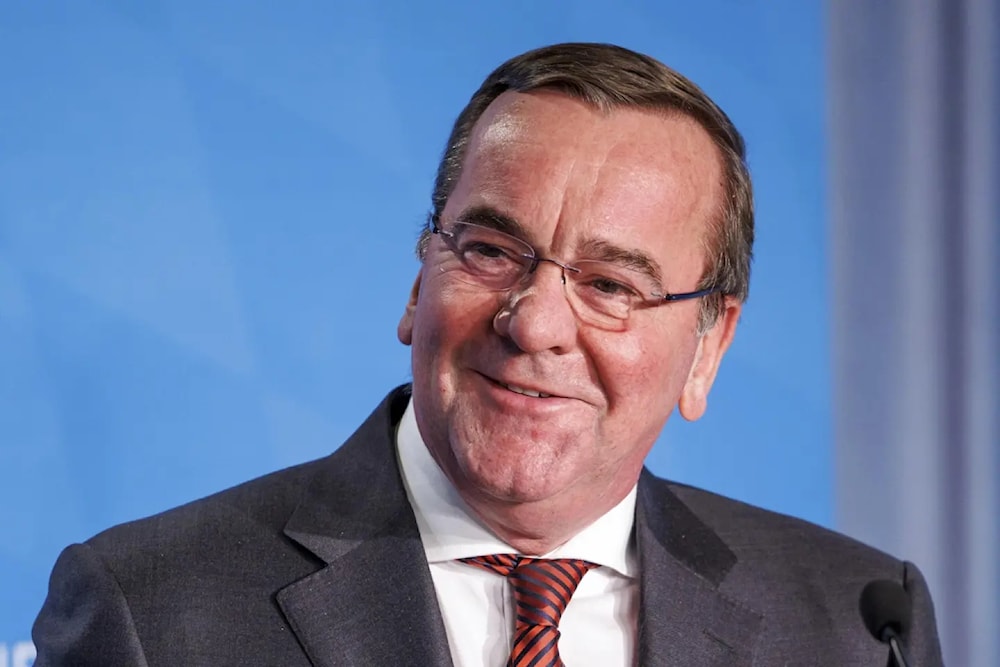German Defense Minister arrives in Kiev in surprise visit
On Tuesday morning, German Defense Minister Boris Pistorius arrived in Kiev, Ukraine for an unannounced visit.
-

German Defense Minister Boris Pistorius at the Conference of Interior Ministers in Munich, on December 02, 2022. (AP)
On Tuesday morning, German Defense Minister Boris Pistorius arrived in Kiev, Ukraine, in an unannounced visit, according to media reports.
During the visit, Pistorius is set to hold negotiations with Ukrainian President Volodymyr Zelensky and Defense Minister Rustem Umerov to further German aid for Ukraine, particularly in providing training for Ukrainian soldiers and weapons shipments.
It is also expected that the minister will lay wreaths in Maidan square and visit a training base for Ukrainian soldiers.
US Defense Secretary Lloyd Austin had also paid an unexpected visit to Kiev the day before to reaffirm the United State's continued support of Ukraine throughout the war, and further reiterate Washington's commitment to aid the Ukrainian military, notably during the upcoming winter.
Kiyoto Tsuji, Japanese state minister for foreign affairs, and Kazuchika Iwata, state minister of economy, trade, and industry, along with Japanese business representatives, also visited Ukraine on Monday to discuss matters relating to the reconstruction of the country and its budget needs, reported at "42 billion dollars" according to Ukrainian Prime Minister Denys Shmyhal.
It is important to note that Japan has been consistently supporting Ukraine, and has imposed sanctions on Russia after the start of the war.
Read more: Amir-Abdollahian in Japan: NATO root cause of war in Ukraine
Germany's Decade-Long Support to Ukraine
Germany has pledged to support Ukraine "for a decade" if needed, as reported by Brigadier General Christian Freuding, through supplying the Ukrainian military with weaponry such as artillery, ammunition, and air defense systems for their rapid effectiveness in combat.
Freuding also affirmed that Germany's efforts are to expedite its coordination and support to Ukraine to ensure its victory in its war against Russia.
Despite this adamance, Germans have expressed aversion to their country's involvement in the Ukrainian war as "Germany has done enough" to support Ukraine, and that Germany's aggression during the Second World War and the cost of supporting refugees are both factors that should be considered promptly as the government commits to brace the war.

 2 Min Read
2 Min Read









